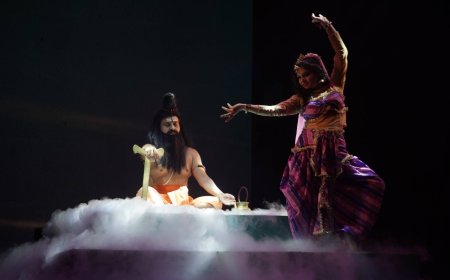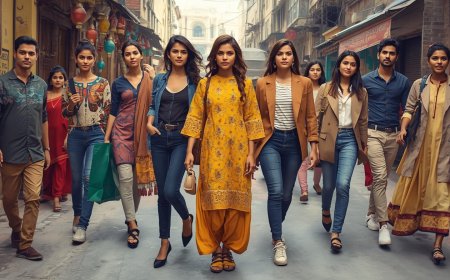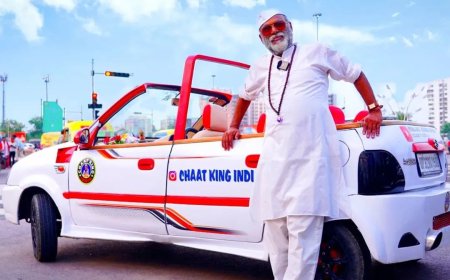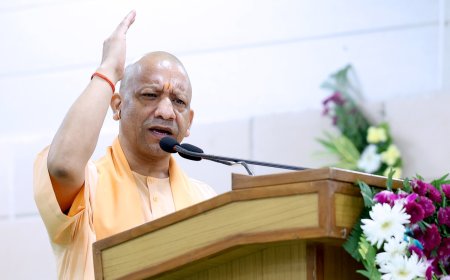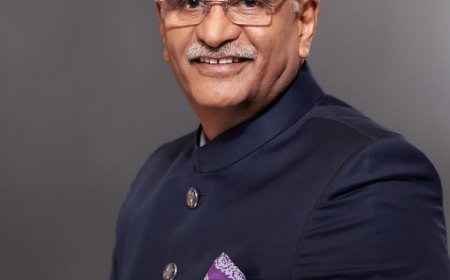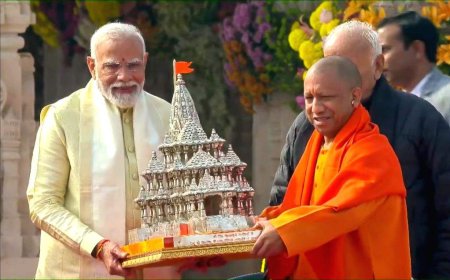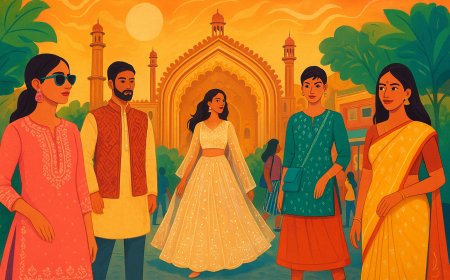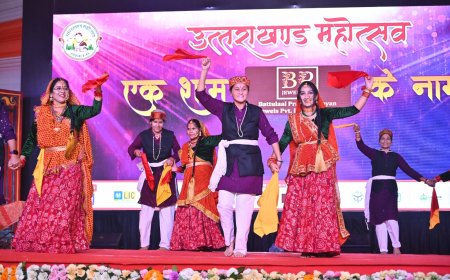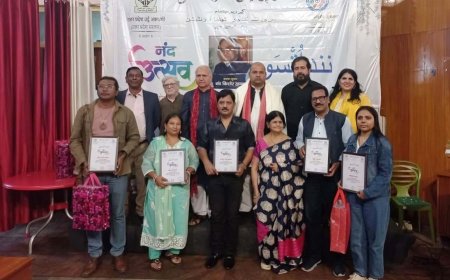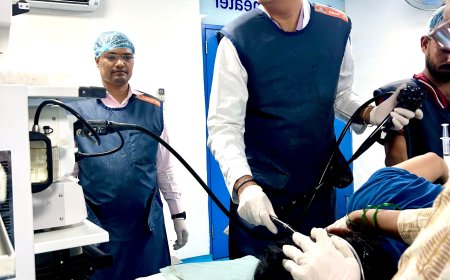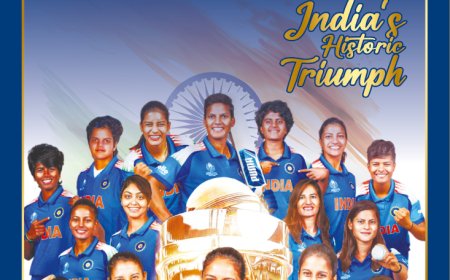Kakori Train Action: Watershed Moment
The Kakori Train Action, carried out on August 9, 1925, remains one of the most daring and significant event
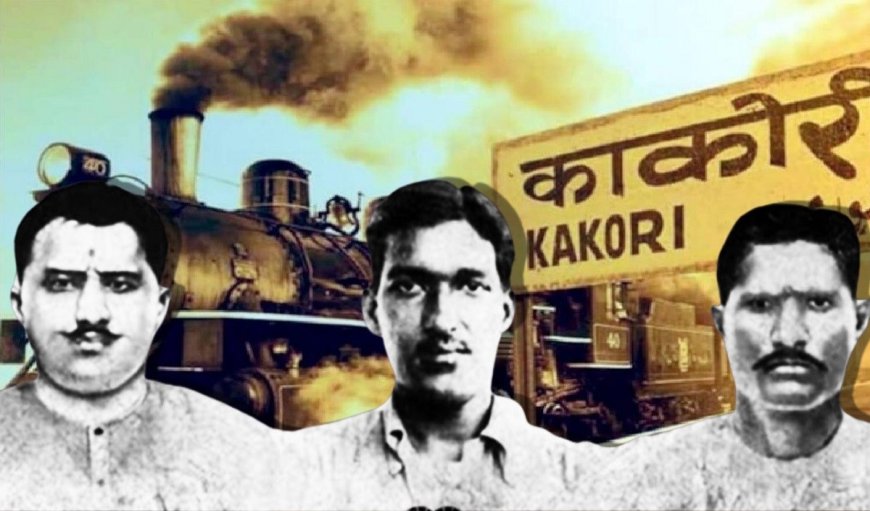
Lucknow: The Kakori Train Action, carried out on August 9, 1925, remains one of the most daring and significant events in India's freedom movement. This meticulously planned operation by the Hindustan Republican Association (HRA) not only challenged the British colonial authority but also ignited a fervent spirit of nationalism among Indians. The incident, often regarded as a turning point in the struggle for independence, showcased the bravery, strategic acumen, and unyielding commitment of young revolutionaries who were determined to liberate their motherland from British rule.
The Incident: What Happened?
The Kakori Train Action was the brainchild of the Hindustan Republican Association, a revolutionary organization founded in 1924 by prominent leaders such as Ram Prasad Bismil, Ashfaqulla Khan, Chandrashekhar Azad, and others.
The organization sought to overthrow British rule through armed revolution, and it needed funds to finance its activities, including the procurement of weapons and the publication of revolutionary literature.
The plan was audacious: on August 9, 1925, a group of ten revolutionaries, led by Ram Prasad Bismil, boarded the Number 8 Down Train from Shahjahanpur to Lucknow. As the train approached Kakori, a small town near Lucknow, the revolutionaries pulled the emergency chain to stop the train. Armed with pistols, they overpowered the British guards and seized a substantial amount of money from the train's guard cabin. The looted money, estimated to be around ₹8,000, was intended to finance the HRA's activities.
The Kakori Train Action was meticulously executed with minimal violence, reflecting the discipline and precision of the revolutionaries. However, the British authorities, alarmed by the audacity of the act, launched a massive manhunt to apprehend the culprits. Over the next few months, most of the revolutionaries involved in the operation were arrested. The British government conducted a sensational trial, known as the Kakori Conspiracy Case, in which 40 individuals were charged. Four prominent revolutionaries—Ram Prasad Bismil, Ashfaqulla Khan, Rajendra Lahiri, and Roshan Singh—were sentenced to death, while others received long prison terms.
Significance in India's Freedom Movement
The Kakori Train Action holds immense significance in the history of India's freedom struggle for several reasons:
1. A Shift in Revolutionary Tactics: The Kakori Train Action marked a shift in the tactics of Indian revolutionaries. Prior to this, most revolutionary activities were localized, sporadic, and focused on symbolic actions like assassinations and bombings. The Kakori incident, however, was a well-planned and coordinated operation that demonstrated the potential for organized revolutionary action. It showed that the revolutionaries were not just angry young men with a grudge against the British but were capable of executing sophisticated plans aimed at challenging the colonial regime's financial and administrative infrastructure.
2. Inspiration for Future Generations: The courage and sacrifice of the Kakori martyrs inspired a generation of young Indians to join the freedom movement. The execution of Bismil, Ashfaqulla Khan, Lahiri, and Roshan Singh turned them into martyrs and national heroes. Their unwavering commitment to the cause of independence, even in the face of death, became a rallying point for future revolutionaries and contributed to the growing disillusionment with British rule among the Indian populace. The Kakori martyrs were immortalized in Indian history, and their legacy continues to inspire patriotic fervor in India.
3. Strengthening of Revolutionary Organizations: The Kakori Train Action and its aftermath led to the strengthening of revolutionary organizations like the HRA. Despite the heavy crackdown by the British authorities, the HRA continued to grow and evolve, eventually transforming into the Hindustan Socialist Republican Association (HSRA) under the leadership of figures like Bhagat Singh, Chandrashekhar Azad, and Sukhdev. The ideological foundation laid by the Kakori martyrs played a crucial role in shaping the HSRA's vision of a socialist and independent India.
4. Widening the Scope of the Freedom Movement: The Kakori incident widened the scope of the freedom movement by demonstrating that the struggle for independence was not confined to peaceful, non-violent methods as advocated by the Indian National Congress under Mahatma Gandhi. It highlighted the existence of a parallel revolutionary movement that sought to achieve independence through armed struggle. This dual approach—non-violent civil disobedience and armed resistance—continued to characterize India's freedom struggle until independence was achieved in 1947.
5. Exposing the Vulnerability of the British Empire: The success of the Kakori Train Action exposed the vulnerability of the British Empire and its inability to fully control the vast Indian subcontinent. The fact that a small group of revolutionaries could carry out such a daring act in broad daylight sent shockwaves through the British administration. It also demonstrated that the British were increasingly losing the moral and psychological grip over their colonial subjects, who were now willing to challenge their authority through direct action.
6. Legal and Political Ramifications: The Kakori Conspiracy Case was one of the most high-profile trials of the Indian independence movement. The trial attracted widespread attention and led to an outpouring of public sympathy for the accused. The British government's harsh sentences, including the death penalty for the key leaders, were seen as an attempt to crush the revolutionary movement, but it only served to galvanize public opinion against colonial rule. The trial also brought to light the deep-rooted discontent among Indians and the growing demand for complete independence from British rule.
7. A Catalyst for Future Revolutionary Actions: The martyrdom of the Kakori revolutionaries served as a catalyst for future revolutionary actions across India. It inspired a series of revolutionary activities, including the Lahore Conspiracy Case, in which Bhagat Singh, Rajguru, and Sukhdev were tried and eventually hanged. The spirit of Kakori lived on in these subsequent movements, as young revolutionaries across India sought to emulate the bravery and determination of the Kakori martyrs.
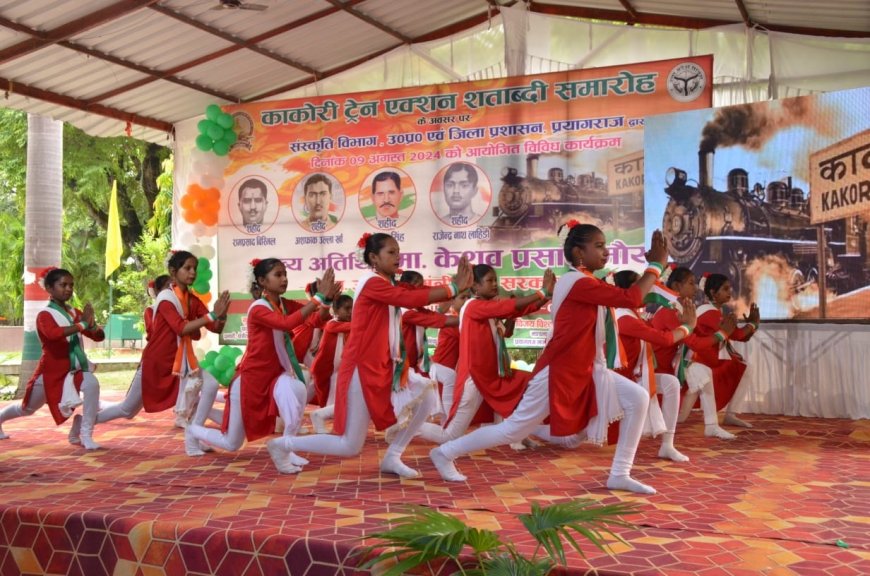
The Legacy of Kakori Train Action
The legacy of the Kakori Train Action extends far beyond the immediate impact it had on the freedom movement. It stands as a symbol of the courage, resilience, and indomitable spirit of India's revolutionaries. The incident is commemorated annually in India, and the martyrs are remembered as national heroes who made the ultimate sacrifice for their country's independence.
In Uttar Pradesh, where the event took place, the Kakori Train Action is celebrated with various events, including educational programs, cultural performances, and tributes to the martyrs. The centenary celebration in 2024 is particularly significant, as it marks 100 years since the historic event and serves as a reminder of the sacrifices made by those who fought for India's freedom.
The Kakori Train Action remains a powerful reminder of the revolutionary spirit that played a crucial role in India's struggle for independence. It is a testament to the idea that freedom is not given, but earned through the sacrifices of countless individuals who are willing to fight for a just and righteous cause. As India continues to celebrate its independence, the legacy of Kakori serves as an enduring source of inspiration for generations to come.
The celebrations, which began on August 9, 2024, include a year-long series of activities across the state.
Educational Initiatives: The state government is organizing various competitions such as quizzes, painting, essay writing, and calligraphy, focusing on the freedom movement. These competitions are designed to engage students from primary schools to colleges, with significant prizes awarded at both district and state levels.
Public Involvement: The "Har Ghar Tiranga" campaign targeted hoisting of approximately 4.5 crore tricolours across the state from August 13 to 15, fostering a sense of national pride. Additionally, a special train named "Kakori Shaurya Gatha Express" is to tour the state for two months, educating people about the Kakori action.
Cultural and Patriotic Events: There was be a six-day commemoration fair, motorcycle rallies, exhibitions, and events to honor the families of the martyrs. The state government has also released a special postage stamp to mark the occasion.
Tributes to Martyrs: Across India, various events are being held to pay tribute to the revolutionaries who participated in the Kakori Train Action. This includes the garlanding of statues, public speeches, and seminars that reflect on the significance of the event in India's freedom struggle.
Cultural Programs: The centenary is being marked by cultural performances, including plays and re-enactments of the Kakori Train Action, aimed at bringing the story of the revolutionaries to life for the younger generation.
Media and Public Outreach: Various media campaigns are being launched to raise awareness about the Kakori Train Action, with documentaries, articles, and social media posts that highlight the event's impact on India's freedom movement.
These celebrations reflect India's ongoing commitment to remembering and honoring the sacrifices made by its freedom fighters, ensuring that their legacy continues to inspire future generations.
What's Your Reaction?







